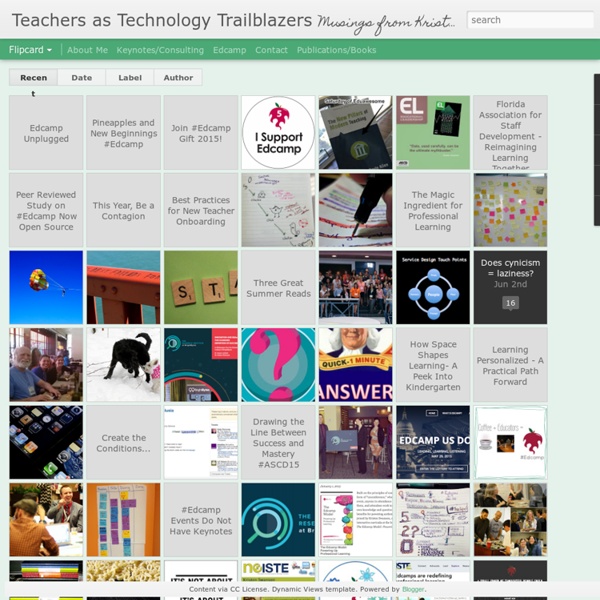



Free Technology for Teachers Arizona Technology In Education Association - AzTEA | AzTEA - Leading the Way Teaching My Calling The Techie Teacher Educational Technology — The Official Website of the Arizona State Department of Education Hot Topics The Educational Technology group offers a wide variety of support on the effective use of technology in the classroom to increase student academic gains. The Educational Technology group provides technology integration support tools, approves technology plans, supports the E-Rate process, provides online professional development and digital resources, and guides the work of the Statewide Instructional Technology Project (SIT). Mission To provide the state of Arizona with support and examples of education technology that will enhance student achievement, increase teacher effectiveness and create cost savings and efficiencies. Vision Create a 21st Century education experience using cutting-edge digital devices, digital content and proven pedagogical practices.
iLearn Technology – Integrating technology in the classroom 21 st Century Educational Technology and Learning | K12 educational transformation through technology Now You See It // The Blog of Author Cathy N. Davidson » Should We Really Abolish Term Papers? Elucidating Issues in the NY Times “Blog V. Term Papers” I admit it. I was dreading the appearance of Matt Richtel’s “Blog versus Term Papers” article in the New York Times. He’s written pretty critically before about technology in classrooms and, although he was careful and professional in our interviews, I was paranoid that I was about to be ambushed. When I saw the title of the article, my heart sunk: I’ve never thought of it as a contest or a competition or a sports event. For me, what to assign in my classes is a matter of deep pedagogical conviction. [You can read Richtel's NYT article here: "Blogs vs. In some ways, Richtel’s article is less aggressive than my own piece (Sept-Oct 2011) in Academe which is highly critical of the establishment English Department that too-often forgets its own importance as society’s “keeper” of two of the three R’s of traditional literacy, namely “reading” and “‘writing.’” But is blogging the answer? (b) I respond more too. I loved their demands on me. What did they do in a quarter of first-year comp?
Common Core: Reading, Understanding & Analyzing Complex Texts *ISTE Workshop: Transitioning to the Common Core with Google Apps – Join me! In my previous post “Common Core: What is a ‘complex text’ anyway?” I wrote about the three aspects of a text that the Common Core measures to determine its “complexity,” which include: 1) quantitative, 2) qualitative, 3) reader and task. Hopefully, that post helped to clarify how we as educators can evaluate the complexity of a text we are using with our students. This blog will focus on ways we can support students in reading, understanding and analyzing those texts. The individual standards for each grade level vary and the standards themselves act like a staircase. * Reading Literature Standards. Annotations Each year, I have students enter my room who claim to hate reading. Annotations are not a new strategy, but few, if any, of my incoming 9th grade students have ever been taught how to annotate. Highlighting tips: Annotation shorthand: ? Making notes in the margin: Digital Annotations
Social Media Classroom We Don't Like "Projects" So I recently quit my job and started my own school with the support of a local media company, the second largest school district in Iowa, and a groundswell of community interest. Our philosophy boils down to a fairly liberal project-based learning environment. As I began the marketing push to enroll students, I uncovered some frankly stunning assumptions that many students have about learning: The word "project" is not a happy word. When I say project-based learning, most students grimace as they imagine prescribed PowerPoints.If a teacher doesn't plan it, it's not learning.If there isn't a test, it wasn't real.Their personal interests cannot inform their learning. Learning is sterile, and the actual usage of the word "learning," to them, is quite different from what a professional might consider learning. I'm not complaining -- in fact, these assumptions are the reason that I struck out on my own in the first place -- but I was flat-out surprised by their ubiquity. 1. 2. 3. 4.
Connecticut superintendents propose a radically different approach to education How do you transform factory era school systems so that they better serve the needs of an information age society? You don’t do it by being timid. Unlike most school reformers floating ‘tweak-the-status-quo’ proposals these days (let’s test kids more! Read the full report. Additional resources Infographic: Blended Learning From the Ground Up In February, we released the Blended Learning Implementation Guide paper and How to Implement Blended Learning infographic as one of the projects in the DLN Smart Series. This summer we’re working with Digital Learning Now! to bundle the series as a ebook that will include updated versions of all eight papers. Working with Scott Ellis and The Learning Accelerator, we created the first version of the Blended Learning Implementation Guide so schools and districts could kick the tires, put the guide to work in the field, and share their feedback — so we could make version 2.0 an even more useful tool. To whet your appetite for the next iteration of the guide, we created another infographic that organizes the implementation process – “Blended Learning From the Ground Up.” We’d love to hear your thoughts on the first draft of the guide and our two implementation infographics. Disclosure: Digital Learning Now!